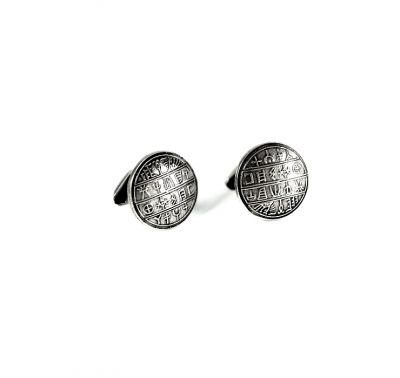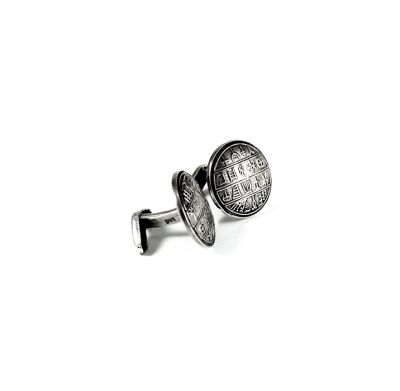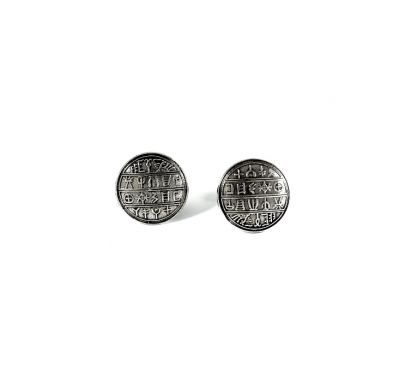The syllabic Linear B script was a great inspiration for the creation of this new pair of cufflinks. This script was used for writing Mycenaean Greek and it predates the Greek alphabet by several centuries. The cufflinks are handmade silver casted.
All prices include VAT.
Linear B is the first form of Greek writing, which was written from left to right. It was a Mycenaean adaptation of the earlier Minoan Linear A script. The Linear B texts have proved to be the oldest surviving record of the Greek dialect. The script's usage spanned the time period between approximately 1500 B.C. and 1200 B.C., and archives of Linear B tablets have been found mainly in the island of Crete, as well as, the Mycenaean palaces of the Greek mainland.
The script was discovered by archaeologist Sir Arthur Evans in the early part of the twentieth century during excavations in Crete and the Greek mainland. However, its full decipherment did not occur until 1953, when English architect and cryptographer Michael Ventris, and John Chadwick, who provided insight into the early history of the Greek language, worked out the phonetic values of Linear B signs and proved that it is the Greek dialect in its oldest known form. Ventris and Chadwick found out that the script consists mostly of syllabic signs, a fair number of logograms, a base-10 number system, and short vertical lines as word separators.
Linear B syllabic script is attested on clay tablets and on some vases and was exclusively used for the economic administration and the ancient accounting records of the materials and goods traded in the palaces. The archives also recorded people under the palace's control. The Linear B syllabary consists of about 90 syllabic signs and about 100 ideographic signs. Each syllabic sign represents a syllable beginning with one consonant and ending with a vowel. The Linear B texts are extremely important for Greek linguistics. They represent the oldest known Greek dialect, elements of which survived in Homer’s language as a result of a long oral tradition of epic poetry.
No posts found











